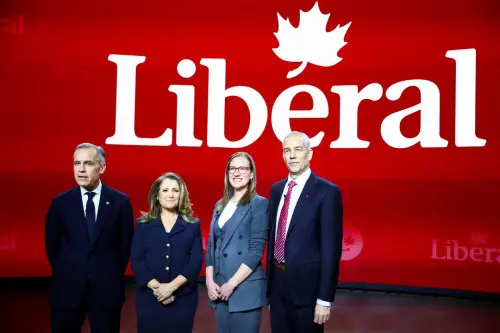In a televised debate on Monday, the top contenders looking to succeed Canadian Prime Minister Justin Trudeau dedicated a significant portion of their discussion to addressing the importance of standing up to U.S. President Donald Trump.
The upcoming election, set for no later than October 20 this year, initially appeared to favor an easy victory for the official opposition Conservatives after over nine years of Liberal governance. However, the current race has become much more competitive, largely due to Trump's threats of imposing tariffs on all Canadian imports.
During a two-hour French-language debate among the four candidates, former finance minister Chrystia Freeland characterized Trump as "the biggest threat to Canada since World War Two." Freeland, who played a key role in negotiating the U.S.-Canada-Mexico trade agreement, highlighted Trump's intentions to escalate economic tensions with Canada, expressing concerns that he aims to incorporate Canada as the 51st state, which could lead to a recession given that 75% of Canadian exports go to the U.S.
Lead by ex-central banker Mark Carney, who is currently leading in polls, stressed that despite Trump's threats, Canada would not become part of the United States. Carney, experienced in navigating crises from his tenure at the Bank of Canada and the Bank of England, emphasized the need for a resilient response to potential Trump tariffs.
Following Freeland's resignation last December, triggering a government crisis and prompting Trudeau to announce his decision to step down, the new party leader will be selected on March 9.
The Conservative party, challenging the notion of differentiation between Trudeau and the leading candidates, released a statement titled "Sneaky Carney Must Come Clean With Canadians" earlier in the day.
The other two candidates, former cabinet minister Karina Gould and retired Liberal legislator Frank Baylis, will join the discussion in English, one of Canada's official languages, on Tuesday.
